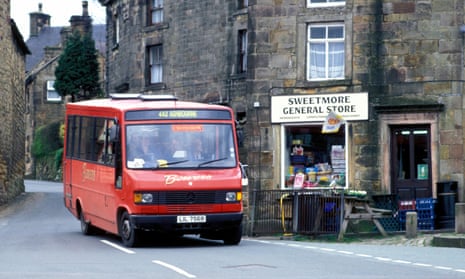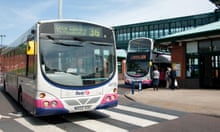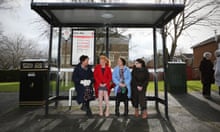The number of local bus journeys has fallen to a 12-year low, prompting public transport campaigners to talk of a crisis in the services.
Latest Department for Transport figures show 1.2bn journeys were made in Britain between April and June, representing a 10% fall from a peak of 1.33bn between July and September 2008.
The reduction has coincided with a 55% increase in average fares. Demand for bus travel has not been this low since the beginning of 2006, according to Press Association analysis.
A recent study by the Campaign for Better Transport (CBT) found that public funding for bus services had almost halved in the last eight years, leaving many areas without public transport.
Local authority budgets for services in England and Wales were cut by £20.5m in 2017, the eighth consecutive annual cut.
CBT’s chief executive, Darren Shirley, urged the government to use the budget on 29 October to halt the trend of cutting support for buses.
“The falling number of passengers taking the bus is a consequence of continued cuts in funding to support services. Nationally and locally this is resulting in fewer services and higher fares,” he said.
“The statistics back up what our research has been showing for years, that buses are in crisis. They are vital for the economy and the environment but year-on-year, people – especially in rural areas – are losing their bus service, making it difficult to access jobs, education and other essential public services.”
Councillor Martin Tett, the Local Government Association’s transport spokesman, said the steady decrease in bus journeys was a major concern.
“It’s nearly impossible for councils to keep subsidising free travel while having to find billions of pounds-worth of savings and protect other vital services like caring for the elderly, filling potholes and collecting bins,” he said.
“The way the concessionary travel scheme is funded by Whitehall has not kept up with growing demand and cost. By giving councils control over the bus service operators’ grant and properly funding the free bus pass schemes, the government could help us support and maintain our essential bus services, reduce congestion and protect vital routes.”









